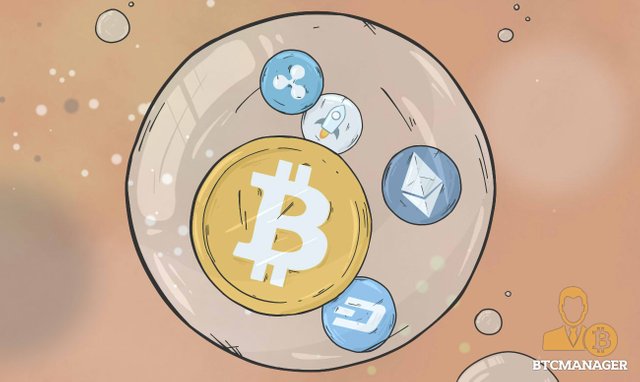
Yesterday, my country Cyprus, introduced for the first time the concept of Black Friday. As you would have guessed, it was no different than the irrational mania that dominates the traditional American version. This mass paranoia though got me thinking about market bubbles.
Our perception today about markets is massively flawed. Social media news act much like daily Black Fridays, making it impossible for us to decipher whether or not mania is indeed happening.
Data science, the new buzz word after CEO, does not work as one might think it works. In fact, I don't think data science works at all in regards to deciphering specific situations. The net is so polluted with meme words and virality that reality itself gets obscured.
We might read news from different crypto sides about an imminent bubble but those news, most of the time, are nothing but copies of one another. Interviews in the street can be tailored to address specific attitudes of the population in order to create a targeted hype. Then the euphoria gets viral due to one single incident. We, as viewers, get to experience only the extremes whether that is hype or FUD (Fear, Uncertainty & Doubt), — failing to capture reality in regards to actual market response.
In this world of social media buzz, everyone is being played one way or another since the line between reality and illusion is heavily blurred from the constant noise. People usually believe that more information is better but this is a massive illusion. Nicholas Taleb, in his book "Fooled By Randomness" describes how factuality about something diminishes when more and more data is introduced into a system. More is not better. Is worse. One can easily find a needle in a cup. They would have much harder time to find it in a haystack.
This is the very reason everyone is calling for a bubble in almost everything. We see only hype around us and the primitive mind immediately seeks the nearest explanation. There is a house bubble, a FIAT bubble, a crypto bubble, a commodity bubble. Do we really have a bubble in these markets or is the media causing all the FUD in order to sell news? One could easily deduct that we only have a single bubble that is causing a false perception about all the rest: A social media bubble.

It's the same here in Italy, we had Black Friday for the first time. Any occasion is useful to sell something.
The bubbles are everywhere because they can't explain what is happening and distinguish them from the growth.
Downvoting a post can decrease pending rewards and make it less visible. Common reasons:
Submit
It only serves one reason. They all want our money. Simple as that.
Downvoting a post can decrease pending rewards and make it less visible. Common reasons:
Submit
to rely on tweets on my decision to buy or sell my coins is one example. It is good that this materpiece has reminded me that there can be noises, false information and fake news. I should filter information grom these sources well.
I should be more careful indeed. Thank you very much and more power!
Downvoting a post can decrease pending rewards and make it less visible. Common reasons:
Submit
Perhaps the perception of future events is molded by the previous and so the inevitably larger scale of a 'bubble' is due to this reason?
Downvoting a post can decrease pending rewards and make it less visible. Common reasons:
Submit
I don't believe the crypto market is in a bubble. Honestly, market manipulation weighs heavier on my mind at this time. I believe the entire cryptocurrency space is seeing more awareness on a global level, hence the billions being added to the total market cap daily.
Downvoting a post can decrease pending rewards and make it less visible. Common reasons:
Submit
upvoted-truly appreciate it
Downvoting a post can decrease pending rewards and make it less visible. Common reasons:
Submit
Yep and whether a bubble is real or not there is one thing that does remain constant. Markets can stay irrational longer than a we can stay solvent.
Downvoting a post can decrease pending rewards and make it less visible. Common reasons:
Submit
RecEntly ive resorted to reading the daily newspaper for news. There are way too many media outlets online.
Downvoting a post can decrease pending rewards and make it less visible. Common reasons:
Submit
Downvoting a post can decrease pending rewards and make it less visible. Common reasons:
Submit
Thanks for the post. Interesting take on "bubble speculation". Do you think we can verify this objectively some how? I.e. can we not compare relative prices today to confirm if today's prices are in fact unusually high? Take the S&P500 Case Schiller Index for example which shows shares are at unusually high valuations. Same goes for most property to rent or income measures.
Downvoting a post can decrease pending rewards and make it less visible. Common reasons:
Submit
How many people know (really know, as in have internalized) that intelligence agencies, military, finance, and other control groups employ thousands of trolls, each with hundreds of online profiles, to maneuver public perception in the direction which suits their objectives in the propaganda wars?
Not many would be my guess.
Downvoting a post can decrease pending rewards and make it less visible. Common reasons:
Submit